There is no straightforward answer to this question. Even studies over the years have produced varying recommendations. But the fact is, you need to drink enough water every day to stay hydrated. So how much water is enough per day?
Table Of Contents
−- Do I Need to Drink 8 Glasses of Water Each Day?
- Factors that influence water needs
- So, How Much Water Does the Body Need?
- Health benefits of water
- How can you tell if you are drinking enough water?
- Does water intake affect energy levels and brain function?
- Does drinking water help in weight loss?
- Does drinking water help prevent health problems?
- Do other fluids contribute to fluid balance?
- Easy way to drink more water
While drinking water depends on various factors, many health experts recommend drinking 8 ounces of glasses, equal to half a gallon or two liters. This is called the 8*8 rule. Other experts will tell you to drink as much water as possible even when you are not dehydrated.
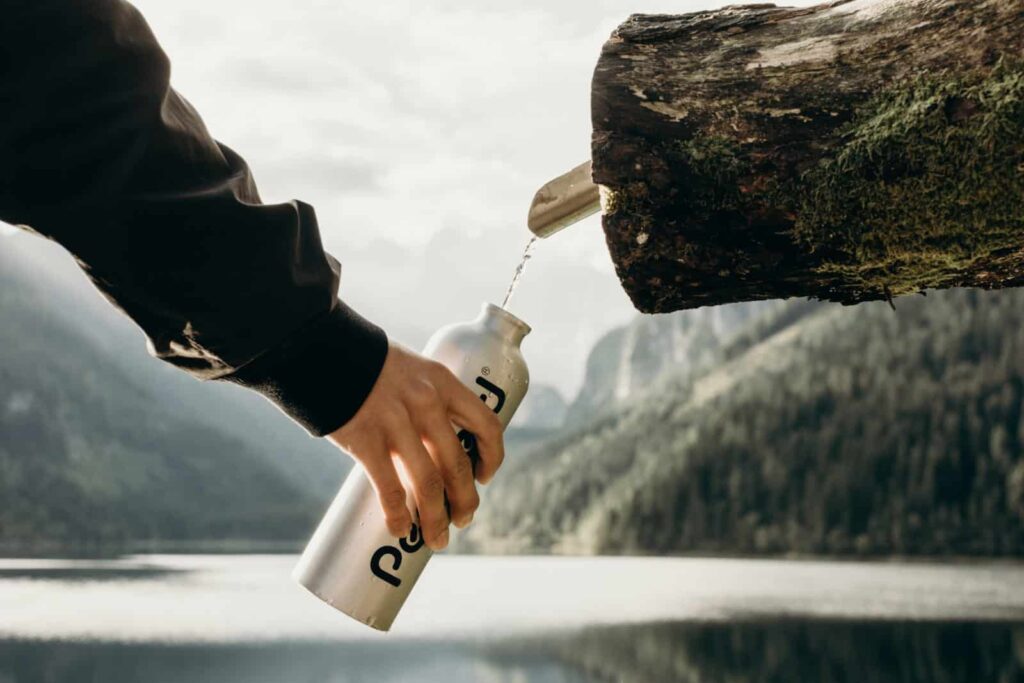
Do I Need to Drink 8 Glasses of Water Each Day?
One hears it everywhere: drink eight 8-ounce glasses of water a day. But where did that idea come from, and is it necessary for good health?
Water is a very important component of a healthily functioning body, no doubt about it. But it’s a little bit harder to find an answer when it comes to just how much water one should drink daily.
In recent years, the rule of 64 ounces (or eight 8-ounce glasses) of water each day has become the accepted standard, but research has proven that claim is not necessarily as solid as some have been led to believe.
The Origin of Eight Glasses a Day
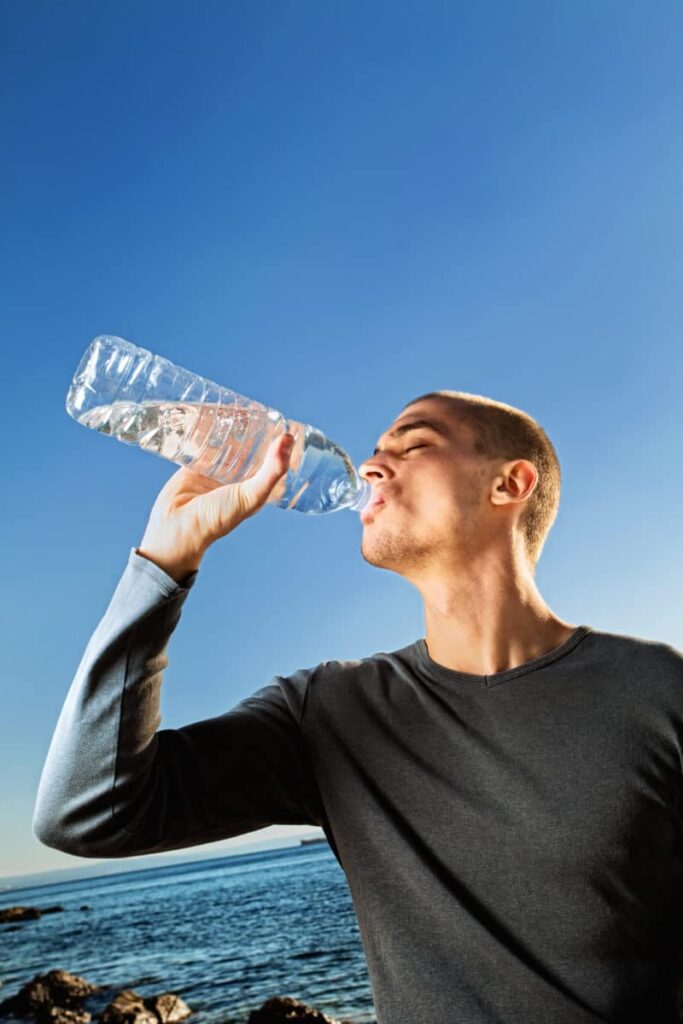
While there is no concrete evidence supporting just where this idea first came from, many people believe that the trend stemmed from a statement made by the Food and Nutrition Board of the National Research Council in 1945.
The Board recommended one milliliter of water for each calorie of food, which equals roughly 64-80 ounces. However, what many people fail to realize about this recommendation is that the amount is for total water intake, including what one may obtain from foods and other beverages.
Factors that influence water needs
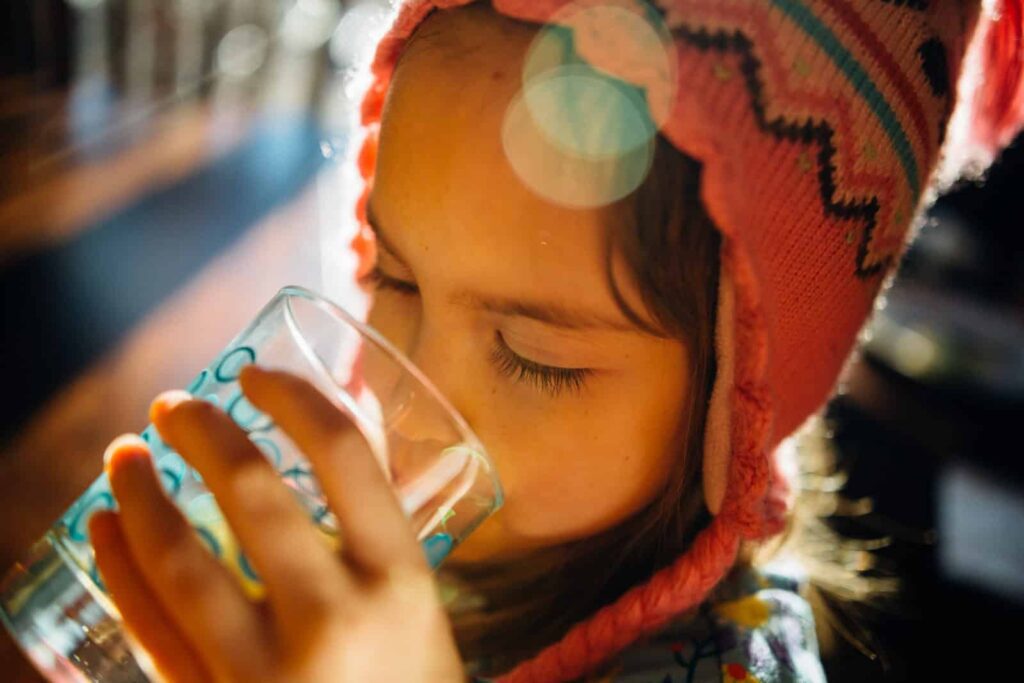
Here are some of the factors that may impact your total fluid intake:
- Your overall health: When vomiting, diarrhea, or fever, your body loses a lot of fluid. You will also likely lose fluids after a bladder infection and urinary tract stones. You need to hydrate often if you have any of these conditions.
- Exercise: Do you do activities that make you sweat a lot? If yes, you need to drink extra water to replenish the lost water. Drinking water before and after exercising is wise for your body to be adequately hydrated.
- Environment: During hot days, your body needs more water to cover fluid loss. Dehydration is also common at high altitudes.
- Pregnancy or breastfeeding: Pregnant women and those breasting feeding need extra water to stay hydrated. It is recommended for pregnant women to drink 2.4 liters of fluids daily and about 3.1 liters per day for breasting women.
So, How Much Water Does the Body Need?

So, if a portion of one’s daily water needs can be obtained from drinking juice, tea, and food, then just how much water does one need to drink daily?
There is no magic number that applies across the board. Just as daily calorie needs vary due to activity level, age, and other factors, the daily water intake also varies.
The amount may be higher for individuals who live in warmer, drier climates, are more physically active, or suffer from certain health conditions. At the same time, those with lower daily activity levels may not need to drink as much water.
The general rule is that one should take in enough water to replace what is lost daily through sweat and other bodily functions.
The Mayo Clinic says that number is around 10 cups of water. Replenishing that loss can come from pure water, other beverages, and foods and may be higher or lower depending on the individual.
So when striving to keep the body hydrated, remember that 64 ounces of water are simply a rule of thumb amount, not a rigid standard. There is no conclusive evidence that drinking 64 ounces of water a day results in better health.
While it is extremely important to keep the body properly hydrated, listening to one’s own body, taking into account personal activity levels, and keeping track of the amount of water received from other sources can be more effective for proper hydration than following the 8-glass standard.
Health benefits of water

Water is an essential component of your body. It is about 60% of your body weight. Our bodies depend largely on water to function properly. Here is how water benefits your body:
- Gets rid of waste through perspiration, urination, and bowel movements
- Lubricates and cushions joints
- Keeps your temperature normal
- Protects sensitive tissues
How can you tell if you are drinking enough water?
The color of your pee can tell whether you are drinking enough water or not. For example, if your urine looks dark yellow and you infrequently urinate, you are not hydrated enough. It is normal to pee every 90 minutes to 2 hours.
Frequently urinating indicates you are taking too much water, and water is likely not benefiting you. Frequent urination can also signal that you need to see a doctor ASAP.
Skin hydration can also tell you if you are hydrating well. You can tell your skin hydration level by pinching the skin on the back of your hand for a few seconds. If the skin returns to normal quickly, you are probably well hydrated. If it takes longer to return, you are probably dehydrated.
Other symptoms of dehydration include:
- Confusion
- Fatigue
- Brain fog
- Dizziness
No one will tell you whether you have taken enough water at the end of the day; only you can know if you had enough. To be sure you are drinking enough water daily, consider experimenting until you are sure what works best for you. You can do the following to hydrate your body well:
- Drink water when you are thirsty
- Avoid drinking more once you quench your thirst. Your body doesn’t need more water to function properly.
- Drink enough water when exercising and during hot and dry days
Does water intake affect energy levels and brain function?

Various studies have shown how water intake affects energy levels and brain functions. For example, one showed that fluid loss of 1.36% after exercising increases headache frequency and impairs mood and concentration.
Other studies further revealed that mild dehydration caused by exercise heat affects various aspects of brain function (* * *).
Mild hydration is also linked to poor physical performance and reduced endurance (* * *).
As you can see, fluid loss can result in some adverse effects on your mental and physical performance.
Does drinking water help in weight loss?
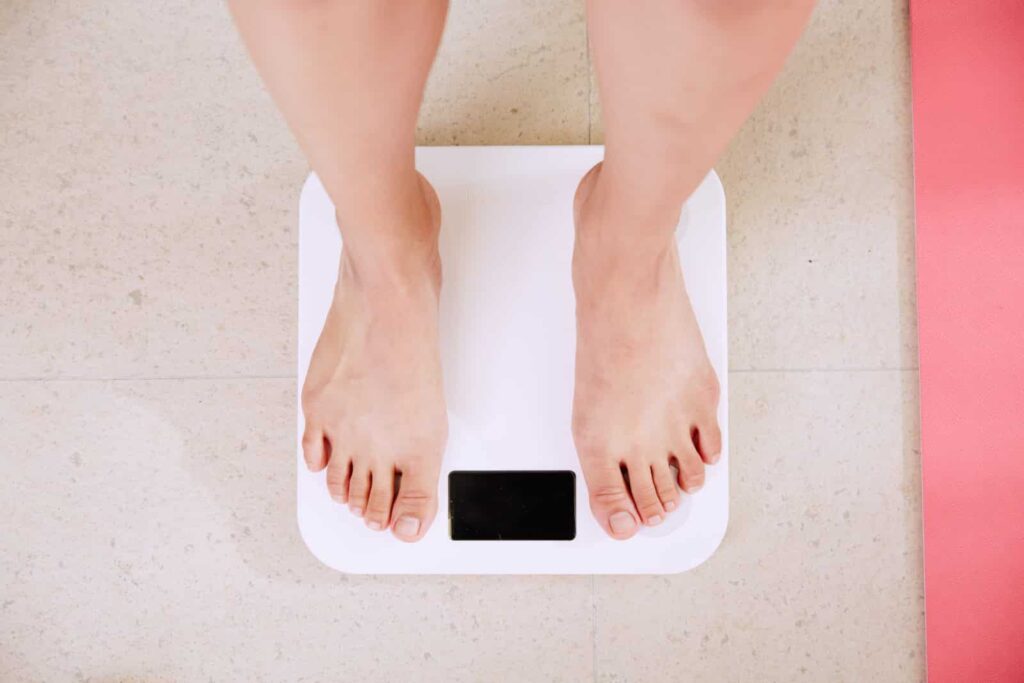
Drinking enough water has been linked to weight loss, especially when combined with a healthy diet. In addition, some studies show that taking about 500 ml of water can temporarily boost metabolism by 24-30%.
Additionally, drinking cold water is beneficial because your body is forced to burn more calories to heat the water to the body’s temperature. Finally, don’t forget drinking water reduces calorie intake, especially in older adults (* *).
A study revealed that dieters who drink 500 ml of water before a meal can lose 44% more weight in 12 weeks than those who don’t.
Does drinking water help prevent health problems?
Yes, drinking enough is very beneficial in many ways. Here is where drinking enough water is crucial
- Increased water intake stops constipation (* * *).
- Increased water intake lowers the risk of bladder and colorectal cancer (* * * *).
- Drinking enough water lowers the risk of kidney stones (* *).
- When you drink enough water, your skin is well hydrated, reducing the risk of acne.
Do other fluids contribute to fluid balance?
Other fluids also contribute to fluid balance. So, feel free to gulp them anytime. But remember, some fluids have their drawbacks. For example, coffee, alcohol, and tea are diuretics. Remember to avoid drinks with high sugar, extra calories, and salt, as you may end up hurting your health.
Food loaded with water also contribute to fluid balance.
Easy way to drink more water
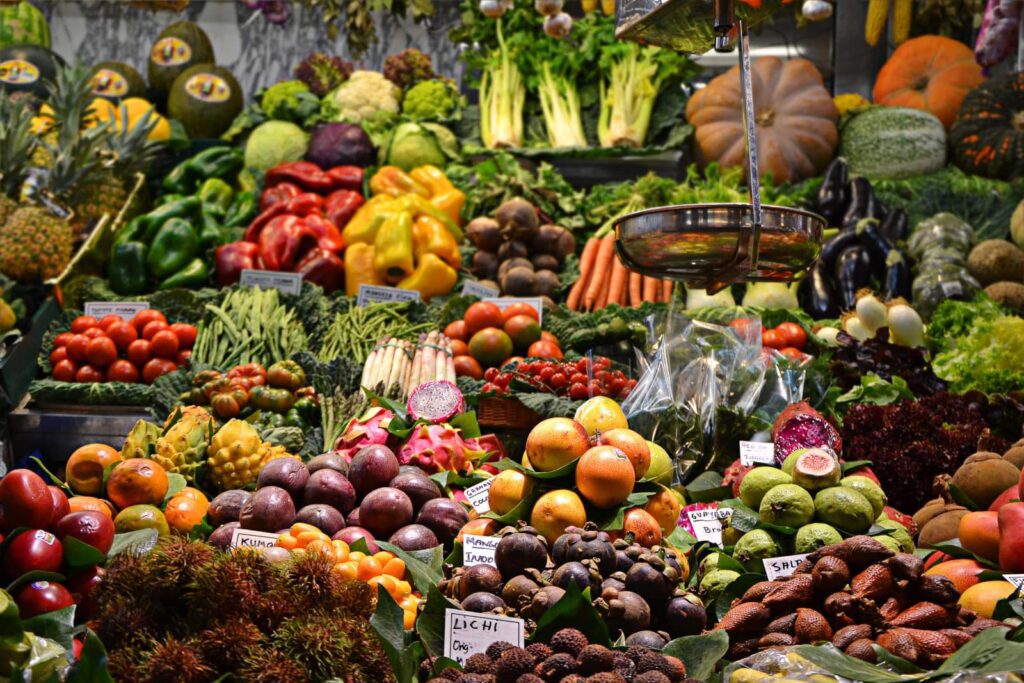
Have trouble drinking enough water? Here is what you can do to drink more:
- Infuse water with fruits
- Drink flavored seltzer water
- Eat water-dense food. Below are some fruits with high water content you can try:
- Coconut water (95% water content)
- Watermelon (92% water content)
- Grapefruit (91% water content)
- Strawberries (91% water content)
- Cantaloupe (90% water content)
- Peach (88% water content)
- Raspberries (87% water content)
- Oranges (87% water content)
- Pineapple (87% water content)
Water-rich vegetables include:
- Iceberg lettuce (96% water content)
- Celery (95% water content)
- Cucumber (95% water content)
- Romaine (95% water content)
- Tomatoes (94% water content)
- Zucchini (94% water content)
- Spinach (92% water content)
- Cabbage (92% water content)
- Green peppers (92% water content)
- Cauliflower (92% water content)
You can also stay hydrated by taking soup, smoothies, stews, slushies, chilis, and popsicles, but avoiding fluids with too much salt and sugar is good.

Jay
Jay is a health and wellness enthusiast with expertise in water quality and nutrition. As a knowledgeable advocate for holistic well-being, Jay successfully manages Type 2 Diabetes through informed lifestyle choices. Committed to sharing reliable and authoritative insights, Jay combines firsthand experience with a passion for enhancing health."
